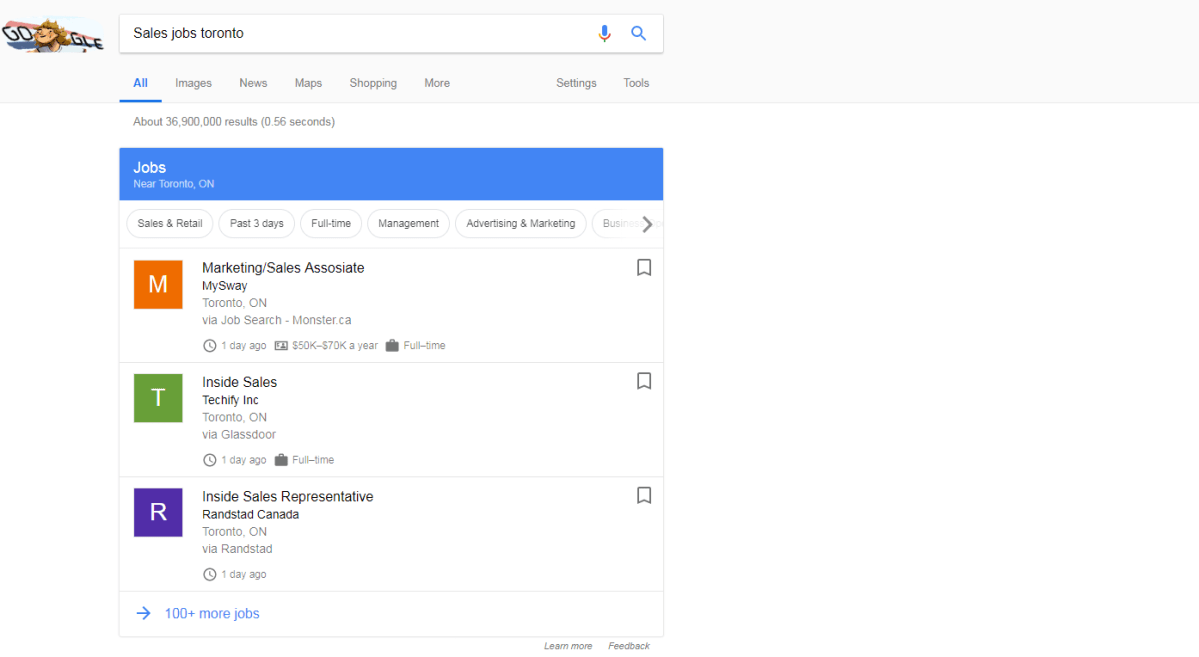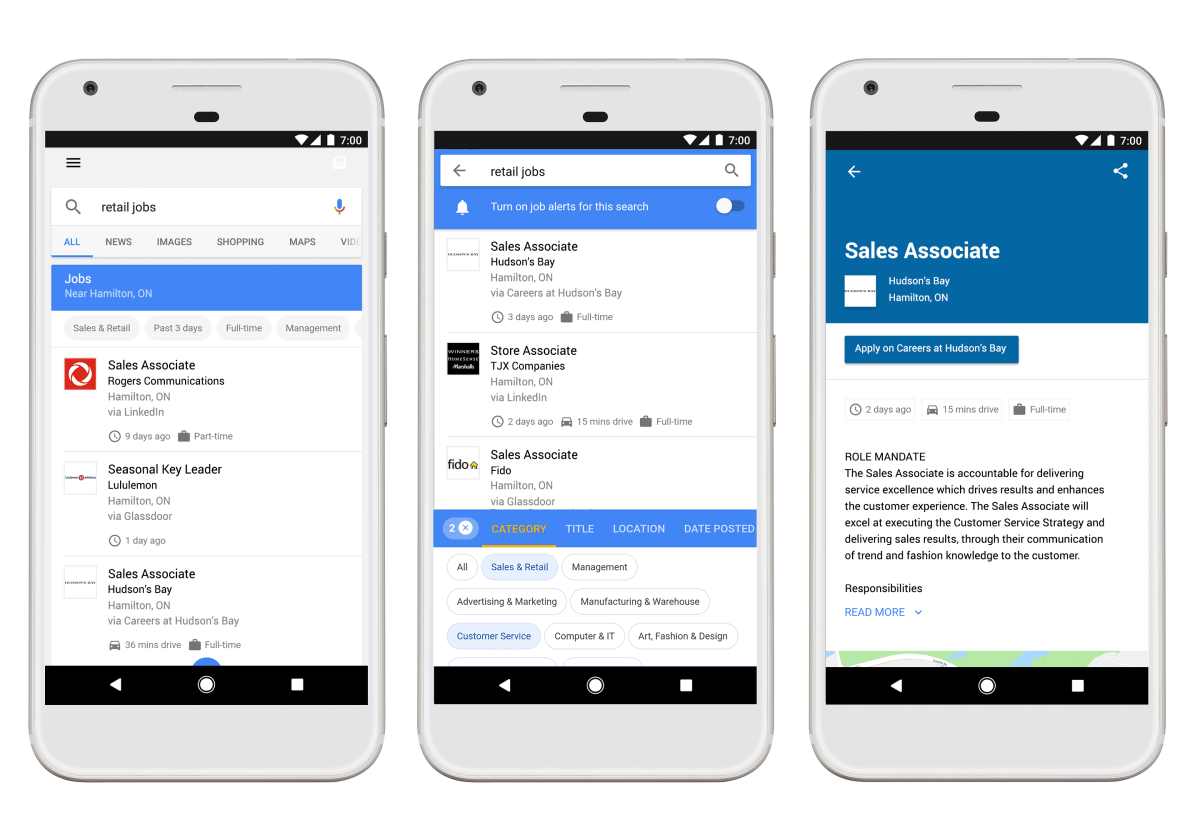Google announced Thursday the launch of a new job search service in partnership with several recruiting search engines and the Canadian innovation hub, the MaRS Discovery District.

Canadians can begin their job hunt right away by typing their search criteria into Google’s search bar, and browsing the job openings that appear directly above the search results. The openings are brought in from partnering job search engines such as Monster and Jobboom.
Sabrina Geremia, Google Canada’s country director, considers the announcement a natural step for the company because “a lot of people turn to Google when they are looking for jobs.”
- Queen’s University students stranded in Doha after Iran attack shuts down airspace
- Iran begins search for new leader; U.S. military says 3 service members killed
- Attack on Iran triggers global flight disruptions, impacts Canadian travellers
- Khamenei’s death met with ‘jubilation’ among Iranian-Canadians: Liberal MP
She added that as job requirements continue to change in a rapidly evolving workplace, Canadians will likely be looking to transfer their skills to new fields going forward. Making these connections is what this initiative is truly designed to do.
The platform will provide users a detailed skills assessment, and potential job types that align with their aptitudes, and routes that they can take to gain the skills and experiences necessary to switch careers.
“While no one can predict exactly how work will change in the future, we know that tomorrow’s jobs are likely to require skills that are uncommon today,” says Andrew Dunckelman, economic opportunity lead at Google.org.
Statements from MaRS and Google say that the platform is designed to address the growing fears around automation in the workplace, which may eventually force Canadians into new, emerging fields.

Get breaking National news
WATCH: Alberta will invest in ‘jobs of tomorrow”

“As the impact of automation on jobs will differ, a uniform response to career transitions will likely come up short,” says Joe Greenwood, lead executive of data at MaRS. “The best results will come from providing a more personalized strategy that helps people to future-proof their careers. By helping workers make the transition, we aim to maximize participation in the digital economy.”
Greenwood went on to say that the service will attempt to target industries that are likely to be most significantly impacted by automation – such as manufacturing, retail, hospitality and financial services industries — by using data to predict what kinds of jobs will be available in the future, and which skills will be required for those careers.
WATCH: Alarming economic forecast for Canadian jobs

Automation in the workplace is a growing concern among Canada’s workforce, with a multitude of fields projected to be significantly altered by artificial intelligence and machine learning. Global News previously reported that automation would likely affect half of Canadian jobs over the next 10 years, according to the findings of an RBC report.
“There will be more jobs in the future, not less. But the skills required are going to change significantly,” explained RBC’s senior vice-president John Stackhouse in an interview.
However, as repetitive tasks are increasingly delegated to automated services, human skills such as creativity, passion and critical thinking are likely to be prioritized by recruiters.
“You might have what it takes to do your job today, but you might not have what it takes in five or 10 years to do the same job… The types of things that are really hard for machines to replace are creativity, human judgment, people management, etc.,” Stackhouse said.
Google’s philanthropic arm will also donate C$1 million to MaRS over the next year as the forthcoming jobs platform is developed, and MaRS will be on the hunt within Toronto’s AI community for people and organizations that can help design the technology for the platform.
*With files from The Canadian Press










Comments
Want to discuss? Please read our Commenting Policy first.